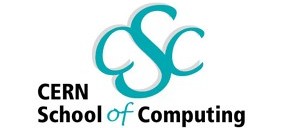Lecturers:
Iris Christadler
-
Leibniz Supercomputing Centre - Germany
Manfred
Muecke
- University of Vienna
- Austria
Andrzej Nowak -
CERN, Geneva |
|
A
few questions |
-
What will
tomorrow's supercomputers look like?
-
What
are the expected changes in commodity
PC hardware and why
should we care about them?
-
What
should I do to use tomorrow’s
supercomputers efficiently?
-
How to
port your application to
GPUs (without porting it)?.
-
Why
thinking
parallel will make all the difference?
-
Shall we
think in local or
global address spaces?
-
Do we
need data
stream processing to cope efficiently with
many-core
CPUs?
-
What to
think of the new programming languages
… Fortress, Chapel, X10, UPC, Co-Array Fortran?
-
Do you
need to learn VHDL when using
FPGAs?
-
How to
define an FPGA's peak
performance? (and how to cheat
doing so?)
-
How can
FPGAs running at 100MHz outperform
CPUs running at 3GHz
-
Does
C-to-Hardware work?
-
Have you
ever wondered what the acronyms
DEISA/PRACE/HPCS
mean?
-
Can your
playstation save the world?
-
Why
should supercomputers care about the
climate change?
-
Do you
still believe that Roadrunner
is just a bird and Maxwell
is a Scottish physicist?
All the answers in the
Computational Intelligence at iCSC
|
|
|
Moore's law still
holds and provides us with unprecedented device integration,
resulting in abundant logic resources even on commodity
computing platforms. However, computing has failed to take
advantage of this gift and increase in computing performance is
constantly lagging behind the increase in logic resources.
In short:
semiconductor technology has overtaken chip designers, computer
scientists and programmers on the right. This is strongly felt
in high-performance computing (HPC) where most applications can
no longer take advantage of the many cores provided by current
supercomputers. Stalling cores nevertheless take up energy and
in HPC power consumption is becoming an important issue. Among
the more promising future solutions to these problems is
reconfigurable computing (computing on flexible fabrics). In
this series of lectures, we want to explore the reasoning behind
reconfigurable HPC, its prospects, implications and issues.
We will discuss different hardware architectures and their
respective requirements and implications to the model of
computation applied (or the mismatch thereof). We will compare
them, sketch their potential for HPC and introduce a more
unified view on them.
We will show that the dominant problem in HPC is not hardware
but software. Especially the fact that our programming models do
not match current technology is the root of many inefficiencies.
Reconfigurable
Computing is challenging, because it asks many questions at the
same time. But it is also most rewarding, because it forces us
to rethink the way we design computers, interconnects, compilers
and applications.
The lectures aim at qualifying students to understand where and
why reconfigurable computing can be expected to have a
considerable impact on tomorrows high-performance computing
landscape, and where not.
|

